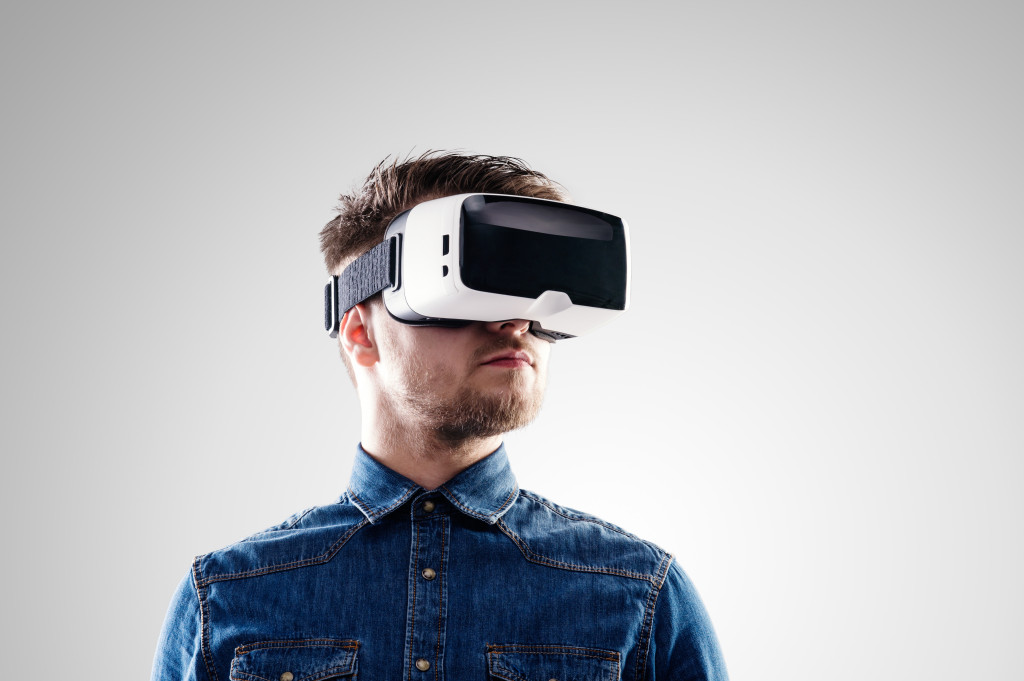Disclaimer: This website provides health information for educational purposes only and is not a substitute for professional medical advice, diagnosis, or treatment. Always seek the guidance of a qualified healthcare provider with any questions you may have.
These days, there are many buzzes about what is happening in the medical field, from doctors and hospitals to pharmaceutical companies and research institutions. As we move forward, technology has been playing an integral role in everything we do, and this trend will only continue to grow. This article will explore and dissect some of the most cutting-edge technologies that are changing healthcare as we know it.
Virtual Reality
Virtual reality is one of the most unique and exciting technologies currently transforming healthcare. This technology allows patients and medical professionals to experience a three-dimensional, computer-generated virtual environment. It can be used for multiple and various applications and processes, such as treating phobias, helping with rehabilitation, and many more. But it’s especially helpful in medical education and training.
Virtual reality allows medical students to train and experience real-life medical situations in a virtual environment. It eliminates the fear of failing by providing them with a safe space to learn at their own pace. An excellent example is ELB’s eLearning services that focus on virtual reality. They can provide immersive and interactive virtual tours of operating rooms, hospitals, and even the inside of an ambulance without needing to be present to experience them. You can do just about anything in virtual reality, and you’ll only be limited by your imagination.

Telemedicine
Telemedicine is a medical technology that’s rapidly growing in healthcare. It allows patients to receive immediate medical care remotely through telecommunications devices such as video conferencing and remote monitoring. Telemedicine can be especially beneficial for faraway patients who cannot travel or live in remote areas. It can also help reduce the cost of healthcare, as patients can often be treated remotely instead of visiting a doctor in person.
Clinical Trials
There has been a growing trend and need towards using technology to improve clinical trials in recent years. There are now several software platforms that allow researchers to better track data and run simulations. These can help improve the accuracy of problems and speed up the process. An example of it is wearable devices used to collect data from patients in real-time, which can help improve the efficacy of treatments.
Artificial Intelligence
There is a lot of anticipation and enthusiasm around artificial intelligence’s (AI) potential in healthcare. AI can improve diagnosis, treatment planning, and patient care. It can make healthcare services more personalized and tailor-made for each individual patient. Several companies are currently developing AI-based solutions for the healthcare industry, and this is likely to be one of the fastest-growing sectors soon.
Big Data
The field of big data is also becoming increasingly important in healthcare. It’s a technology that involves collecting, managing, and analyzing large amounts of data to identify patterns and trends in patients, medical professionals, and medical institutions. These data can all become valuable information to help push the healthcare industry forward. Big data can also improve our understanding of diseases, develop new treatments, and find better ways to manage patient care, which can help medical professionals and institutions maximize their resources efficiently.
Robotics and Artificial Intelligence
Robotics is nothing new in healthcare, but its continued growth is why it will still be part of the future of medicine. And because modern robots are more sophisticated than ever, they have evolved from doing menial tasks in the operating room to assisting surgeons through an entire operation. They’re more accurate and precise, which helps cut down operation and surgery times. The potential of robotics doing more than it can with each generational leap remains one of the prevailing aspects of healthcare.
In addition to robotics, artificial intelligence is also beginning to make its way into healthcare. Medical professionals can use AI to diagnose patients, create customized treatment planning and patient care, extract and interpret information from patients and many more. Several companies are currently developing AI-based solutions for the healthcare industry, which is likely to become a massive sector in medicine.
Nanotechnology
Nanotechnology is the science, technology, and the process of creating structures and devices sized on nanometers or billionths of a meter. In healthcare, nanotechnology can be used to develop new treatments, diagnostics, and medical devices that can completely transform the lives of the patients that can benefit from them. It can also improve the delivery of drugs into a patient’s body and reduce the toxicity of chemotherapy and similar treatments. While Nanotechnology is a relatively new concept in medicine and still in its early stages, it has the potential to revolutionize healthcare massively sooner or later.
3D Printing
3D printing is the process of making three-dimensional objects from a digital file. In healthcare, 3D printing can create custom implants and prosthetics. It can also be used to create models of organs and tissues used for surgical planning. 3D printing is also being used to make pills that contain multiple drugs, which can be taken at different times. It’s the unicorn of all tech trends in medicine because of the vastness of its application. 3D printing is an incredibly versatile technology that the healthcare industry won’t take too long to exploit its capabilities.
The future of healthcare is exciting, and it’s looking very bright, thanks to the many innovative technologies currently being developed. These technologies and their applications will undoubtedly help improve the quality of care we provide to patients and help reduce costs. So whatever your thoughts on the future of healthcare, be sure to keep an eye on these exciting technologies!

